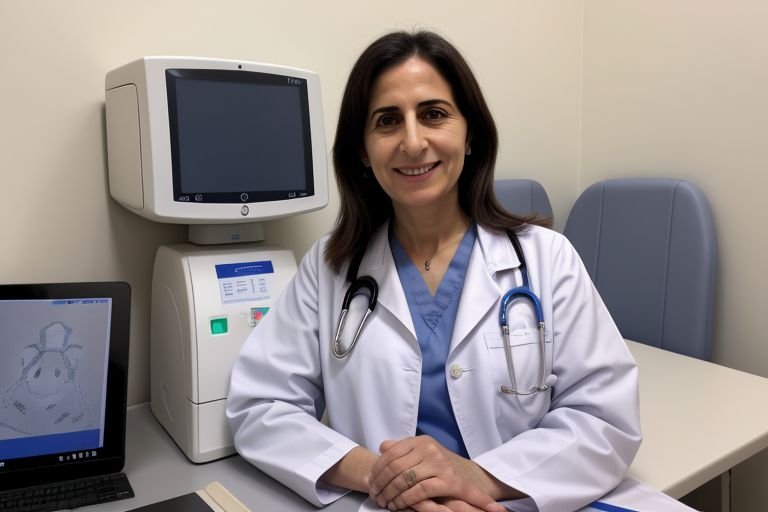Israel’s reputation as a hub for medical technology and artificial intelligence continues to grow, with recent developments showcasing the country’s innovative spirit in healthcare. Israeli researchers and companies are leading the world towards transformational patient care and medical practise thanks to breakthrough cancer treatments and using AI powered diagnostic tools.
A team of researchers from the Hebrew University of Jerusalem has made a significant breakthrough in cardiac research, developing what they describe as “multi-chambered self-paced vascularized human cardiac organoids.” This is a major stride towards the development of so called lab grown heart tissue, and could revolutionise our ability to study and treat cardiac diseases and personalised treatment. Such organoids (which mimic the structure and function of human heart tissue) could reduce reliance on animal testing while accelerating the speed of cardiac research, since they mimic the structure and function of human heart tissue.
The Sheba Institute of Pathology has achieved significant progress in developing advanced techniques of early detection and planning of treatment in the cancer diagnostics field. Focused on their past success, the institute has come out with a new diagnostic tool which would aid in improving the accuracy and speed of cancer identification. The latest advance could pave the way for more targeted, more effective treatments, for improving outcomes for cancer patients in Israel and around the world.
Israeli startup Faddom has risen to the noses of its peers by developing innovative ways to secure healthcare settings from cyber attacks. The company provides a platform, for organisations to plan simulation scenarios that envision vulnerabilities in hospital networks and medical devices so healthcare providers are better prepared in case of a cyber incident. As more healthcare systems become digitilised, such tools are becoming critical for protecting sensitive patient data and for guaranteeing the uninterrupted operation of vital medical equipment.
In a move that underscores Israel’s commitment to fostering innovation in healthcare, the country’s top hospital has unveiled a new program aimed at promoting healthtech startups. It is hoped the initiative will serve as a valuable platform for entrepreneurs and researchers to develop and test new medical technologies in a real world clinical setting, accelerating the ‘from concept to market’ path for promising healthcare solutions.
Israel remains a fertile ground for innovation in intersection of AI and healthcare. Israeli researchers have recently found that AI can analyse voice patterns and other biomarkers to identify Parkinson’s disease in early stages. This non invasive method may save time in earlier diagnosis and intervention in this neurodegenerative disorder ultimately leading to a better quality of life for those afflicted.
Medical technology advancements in Israel aren’t just diagnosis and treatment. The country is making strides towards patient care and support. This newly developed app is a dedicated mentor for patients that focuses on empowerment and patient/caregiver support. It is a digital health solution with a goal of improving patient outcomes by helping patients get the right care, at the right time and in the right place and to help better facilitate better communication of patients, caregivers and healthcare providers.
An Israeli scientist has made a name for herself in the field of pharmaceutical research, for her work in developing therapies for everything from HIV to leukaemia. She has developed the formulas that now target COVID, Alzheimer’s disease potential treatments and promising therapies for the metabolic disorders – like diabetes and cancer. Such a multifaceted approach to drug development provides a good overview of Israel’s very versatile and innovative pharmaceutical sector.
The country’s water technology expertise also is making its way into healthcare. Recently, water from air technology was installed at a Bedouin sustainable farming project that is showing the viability of innovative solutions to tackle the increasing water scarcity in arid regions. Implications for agriculture are not the only impact of this technology: there would also be implications for delivering clean water in healthcare settings in remote or water stressed areas.
While Israel is walking the rocky high road in a dynamic and volatile region, its medical technology sector serves as an example of how to do so and to collaborate. But the industry continues to attract international partnerships and investment, even in the toughest of times. It is exemplified by the most recent creation of a joint venture fund between Israeli and South Korean entities that aim to focus on emerging technologies including, but not limited to, healthtech.
With Israel’s ongoing advancement in medtech and AI, we continue to see economic development combined with better global health outcomes. As these innovations develop in the lab and go into clinical application, we hope they will change patient care, improve diagnostic accuracy, and add new hope for patients with difficult medical conditions to face. Israel’s role as a leader in driving innovation in healthcare and a natural base for world class research institutions, combined with its entrepreneurs and entrepreneurial spirit makes it an even more invaluable strategic partner in advancing innovation in healthcare and healthcare technology worldwide.


